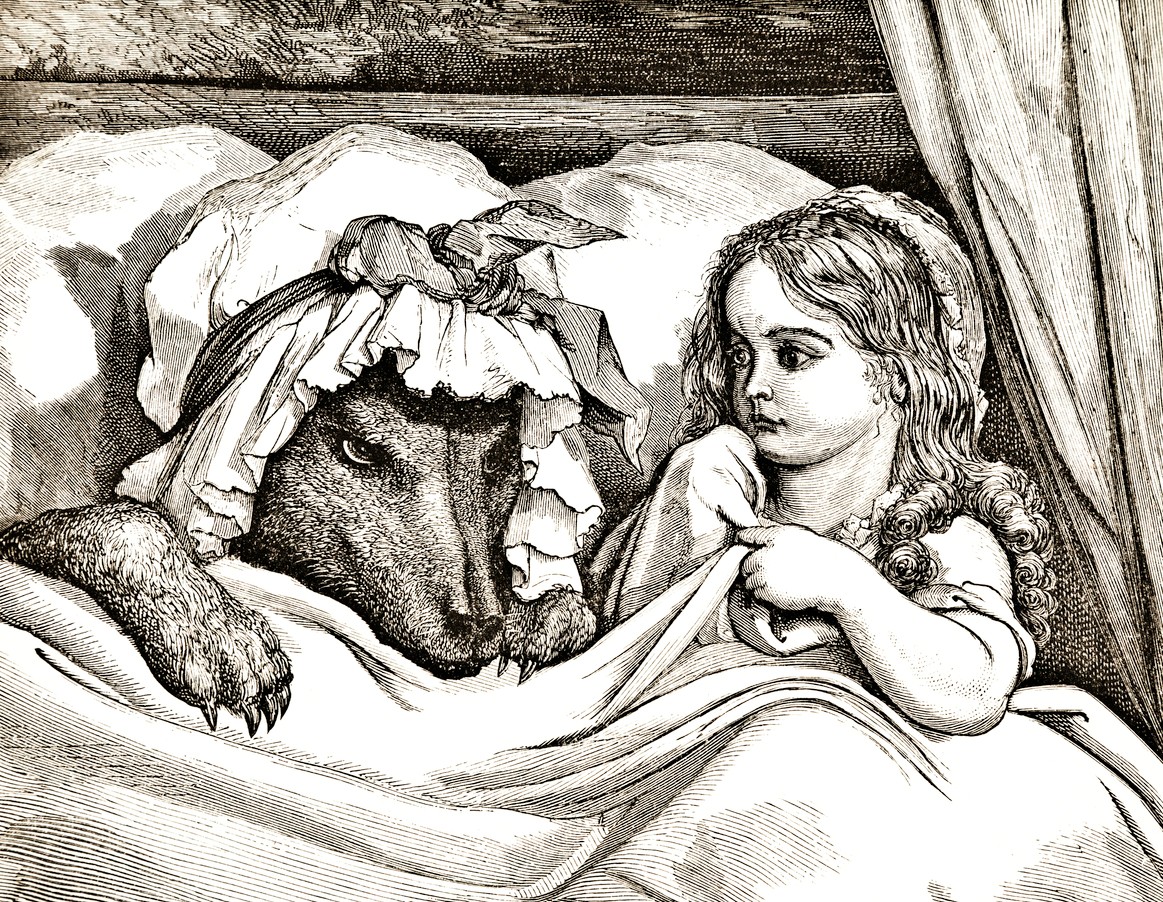A fable exposing the deception behind the redefinition of marriage and the ruin it brings.
by Rev. Mark Creech
RevMarkCreech.org
Author’s Note
Several years ago, I wrote the following allegory. While sorting through some old files recently, I discovered it again and decided it was worth updating and refining. Its purpose is not simply to retell a children’s tale, but to cast light on one of the most consequential shifts in our nation’s moral and cultural life: the redefinition of marriage from what it has always been — the union of one man and one woman — to something entirely different.
This fable seeks to unmask the deception and evil behind that change and illustrate the tragic consequences that have followed the Obergefell decision by the U.S. Supreme Court. Like all fables, it is best read slowly, with an eye to its symbolism, for its lessons remain as urgent now as when it was first written.
*******
Once upon a time, a little girl was dearly devoted to her grandmother. The old woman had sewn for her a velvet cap so fine and fitting that she wore it constantly, and for that reason, she was known everywhere as Little Red Riding Hood.
One morning, grandmother prepared a basket of many good things gathered over her long years. She gave it to Little Red Riding Hood’s parents, who passed it along to her. “Take these,” they said, “for they are the blessings your grandmother has always given us. Go, treasure them and enjoy them with her.”
The path to grandmother’s house wound deep into the forest, a place Little Red Riding Hood never considered dangerous. But there, lurking among the shadows, was a Big Bad Wolf.
“Good day, Little Red Riding Hood,” said the wolf. “Where are you off to so early?”
“To grandmother’s house,” she answered politely.
“And what do you carry in that basket?” he asked.
“Many blessings,” she replied. “They came from grandmother, who gave them to my parents, who passed along the basket to me, and now I wish to experience them with her.”
The wolf licked his lips. “A tender child and an old woman – what a feast that would make. But I must be cunning, or I shall lose them both.”
He chatted with Little Red Riding Hood for a while longer, insisting that wolves were misunderstood, that people feared them unnecessarily, and that they only wanted to be treated like everyone else.
The innocent and impressionable little girl wondered if he might be right. Doubting, she said, “Maybe the Wolf is not as dangerous as people say. Maybe people need to ‘get over it.’”
Meanwhile, the wolf hurried to grandmother’s house and knocked at her door.
“Who is there?” called grandmother.
“It is I — Little Red Riding Hood — bringing gifts to brighten your day,” said the Big Bad Wolf. “They are new gifts to go along with the old ones you gave, for surely every latest one makes your blessings fuller.”
The moment grandmother lifted the latch, the Big Bad Wolf sprang upon her and devoured her whole. Then, donning her nightgown and cap, he crept into the bed and posed as though he were she.
When Little Red Riding Hood arrived, she noticed something seemed peculiar. Stepping closer to the bed, she whispered, “Grandmother, what big ears you have! What large eyes, hands, and mouth!”
“Surely you can learn to celebrate differences,” said the Big Bad Wolf, disguised as grandmother. “How you have known me can change and still be just as sweet. Though I may look different, my love is still love. You need not see me in only one form. Times change. People evolve. It isn’t fair to confine me to the past. Besides, this new look is the destiny of progress – inevitable as the turning of the seasons. So, you may as well get used to it.”
And just when he knew the time was right, the Big Bad Wolf sprang upon the unsuspecting Little Red Riding Hood to tear her apart and consume her, too.
But just then, a virtuous woodcutter nearby heard her cries. Swinging his axe, he chased the terrible wolf away, keeping him at bay. Most townspeople rallied to his side – except for five foolish judges considered Supreme.
They reproved the worthy woodcutter. “You are intolerant. You had no right to interfere. The axe is taken from you, for by our wisdom the Wolf is grandmother now.”
Behind the five foolish judges were clever foxes, sharing the same nature as the wolf. Guileful and gravely mistaken, they spoke with professed authority, insisting that a wolf’s appetite was only natural, restraining it was unjust, and that grandmothers — like old traditions — must yield to the modern age.
Compelled by deceitful voices and the decree of the five foolish judges, the townspeople incrementally exchanged truth for lies. “The wolf is grandmother now,” they started to say.
Some began to praise and celebrate the Wolf with festivals aplenty, flying his banner everywhere. His emblem was found on their cottages, village shops, and peddlers’ carts.
Advocates for Forest Law demanded special protections for the wolves. Those who dared question the duplicitous nature of the wolf and his kind risked losing their homes, work, and freedom. Some painfully suffered their wrath.
But matters did not stop there. In time, Forest Law advocates and the townspeople declared that wolves should be allowed to compete in the sheepdog trials.
The sheepdogs protested. “We are bred for this work. We have trained for it all our lives. How can we compete with wolves, who are so much stronger?”
The foxes sneered, “Some wolves are simply misunderstood sheepdogs. They are sheepdogs in a wolf’s body. To keep them from the contests is cruel and discriminatory.”
So, wolves were permitted to run. Predictably, they easily outpaced the sheepdogs, overpowering them and spoiling the contests meant to honor the sheepdogs’ unique strength, grace, and beauty.
Fewer and fewer sheepdogs bothered to compete, for they knew the scales were tipped. What had once been noble contests became a farce. Though many townspeople grieved the loss and silently objected, thinking the whole thing was absurd, they dared not speak aloud for fear of being branded judgmental, extremists, unloving, or intolerant bigots.
The years passed, and grandmother was gone. Little Red Riding Hood wandered in confusion, and the basket of blessings lay nearly bare. The wolf, hailed in places he never belonged, left divisiveness and ruin wherever he went.
Yet not every villager was deceived. Some still remembered the virtuous woodcutter and his axe, and shared with their children that truth, though sometimes despised and unpopular, is never wholly lost. For one day, they said, the Big Bad Wolf, every wolf, every fox, and every foolish judge would meet their Judgment, their cunning and oppression undone.
*******
The meaning of this tale is plain enough. The grandmother is God’s order for marriage as one man and one woman. The wolf is the devil, and his movement to redefine it. Little Red Riding Hood is the child whose future is at stake. The basket represents the many blessings of traditional marriage. The woodcutter is true religion’s defense of God’s design, his axe – the laws that once defined traditional marriage. The five foolish judges are the five Supreme Court Justices who redefined the institution. The foxes are so-called experts who call what is unnatural, natural. The sheepdogs are women whose opportunities and fairness are being devoured. The sheepdog trials are women’s sports, corrupted when wolves were allowed in. The townspeople are shifting public opinion. Those who, whether defiant of God’s command or unwittingly deceived, straight or gay, give credence to and support the LGBTQ agenda and its destructive consequences are wolves.
Read it again with the key in hand; perhaps the story will speak for itself.


